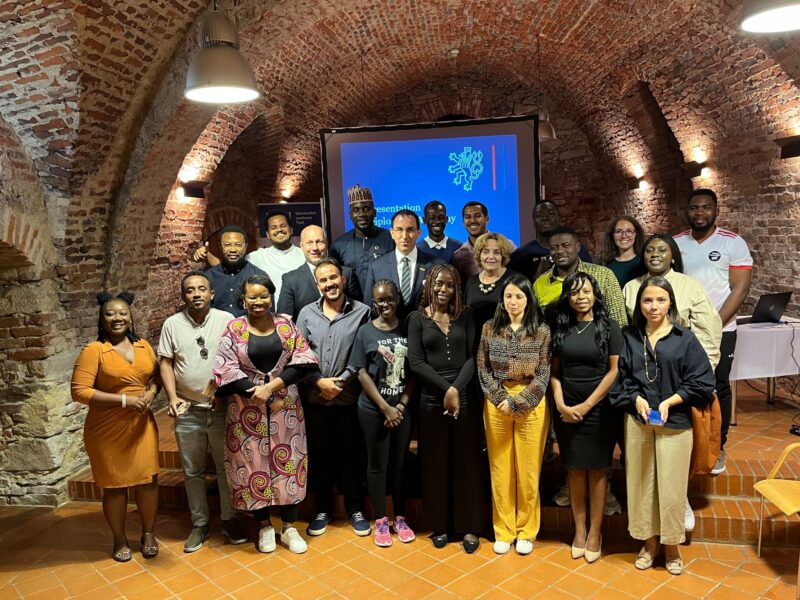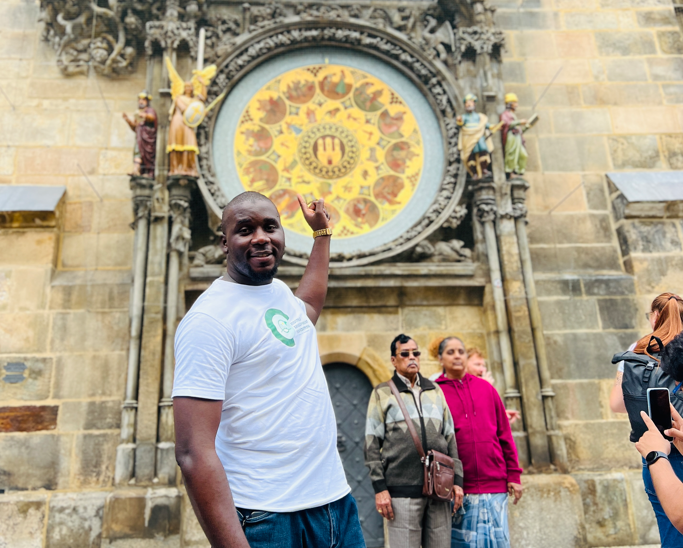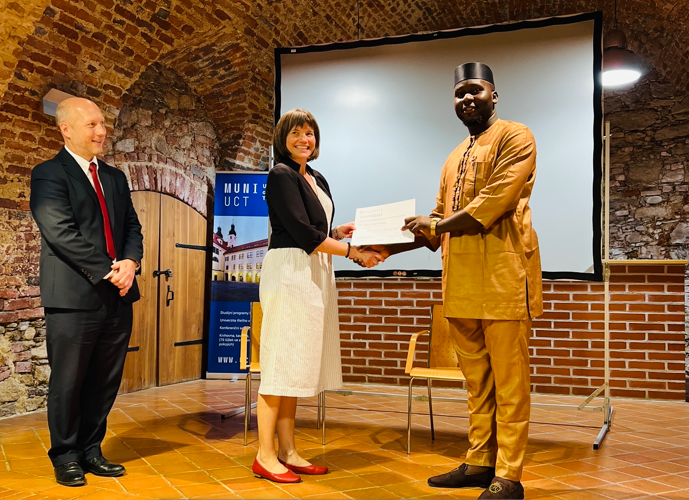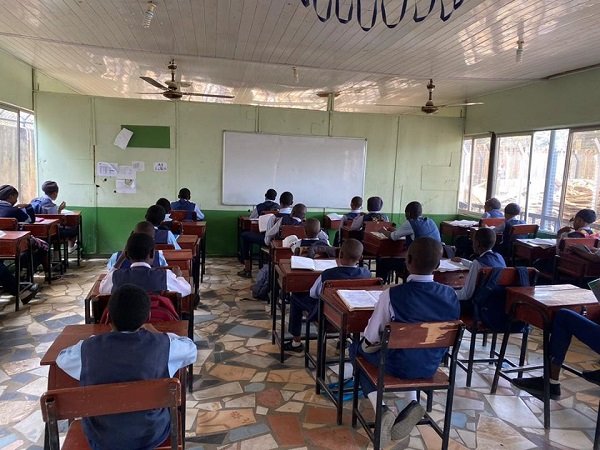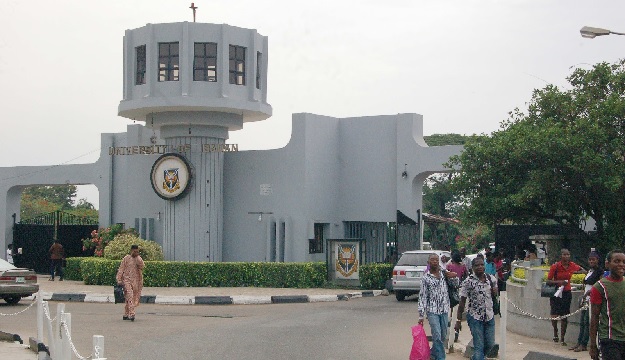BY ALIYU SADIQ
Czech Republic’s experience under communist rule and subsequent democratic transition after the ‘Velvet Revolution’ — which was spearheaded by a good composition of young people who now champion its national affairs — is a reflection of its democratic resilience and can serve as a compass for African countries where democracy is struggling.
Being a young African leader and climate justice activist who is leading transformational change in Nigeria towards ensuring climate justice and addressing critical environmental challenges, I was among the 19 young leaders selected from ten African countries including Ghana, Ethiopia, Kenya, Zambia and others, to attend the Young African Leaders Study Trip (COOL CZECHIA) in the Czech Republic.
The study trip, being the first of its kind organised by the Czech ministry of foreign affairs, inspired an atmosphere for thought-provoking conversation with government officials, prominent figures, and experts, pertaining to current issues on Africa’s bilateral relationship with Europe, Czech Republic’s strategy to support Africa, as well as development issues, energy security, global politics, amongst others. It was also an avenue for networking and experience sharing amongst young African leaders as well as with officials of the government of the Czech Republic.
Advertisement
The study trip was a worthy experience given that it provided a good grasp of Czech history, notably stories about the Velvet Revolution. The remarkable role played by young people in restoring freedom and democracy in the country, through the Velvet Revolution, which ended the communist era, further reaffirms the potential of young people towards achieving global sustainable development.
The Czech Republic’s selfless interest in promoting fundamental human rights, freedom, and democracy is reflected in its humanitarian assistance to neighbouring nations such as Ukraine. This was evident from the substantial number of immigrants from other European nations like Ukraine, Germany, Hungary, and Slovakia, among others, who reside and carry out business freely in cities such as Prague and Telc.
Advertisement
ENERGY INDEPENDENCE: EMISSION, POLLUTION CHALLENGE
The European Union produced approximately 2.73 billion metric tons of carbon dioxide (GtCO₂) emissions in 2022 alone. Coal, used for power generation, has remained the leading cause of greenhouse gas emissions in the EU, with countries like Germany, Poland, Italy and France taking the lead on this.
With the Czech Republic’s huge economic reliance on energy-driven industries, which, according to the European Parliament, contributes to 60 percent of its total emissions, its target towards reducing these emissions by 14 percent by 2030 becomes more difficult to achieve.
How then does the country hope to deal with this challenge?
Advertisement
To gain a deeper understanding of the Czech Republic’s recent energy independence pursuit, I engaged in a conversation with a government official on Czechia’s energy security strategies during an academic session in Telç. The interaction provided more insight into the energy-sustainability dilemma, which emerged owing to the rift between the Czech Republic and Russia, its former major energy supplier, triggered by Czechia’s support for Ukraine in the ongoing Russia-Ukraine war.
The country’s swift transformation from 90 percent energy dependence on Russia into becoming an energy-independent nation is an affirmation of its resilience, hence worthy of emulation by other nations. However, this aspired energy dependency drift must be carried out with strict compliance to national, regional and international environmental standards, while also maintaining commitments to emission reduction targets.
Relating to Nigeria’s experience, the discovery of crude oil in the Niger Delta in 1958 took the nation’s attention away from other sources of revenue including agriculture, which used to be a major source of revenue, into extreme dependence on crude oil revenues. The huge economic boom from the crude oil sector triggered decades of devastating environmental pollution, gas flaring, and the release of greenhouse gas emissions, consequently making ancestral lands to become unproductive, unhealthy and ultimately inhabitable. This previously avoidable situation gave rise to conflict, war, increased poverty, and the displacement of women and children in major host communities.
Growing up in Nigeria and witnessing firsthand some of the horrific impacts of environmental pollution and climate change inspired my climate activism path, propelling me enthusiastically in the pursuit of climate justice and sustainable development.
Advertisement
While the study trip provided me with a broader perspective on Europe’s energy trends, I also shared recommendations and best practices that could potentially improve environmental sustainability practices for the Czech Republic as it goes forward with the energy independence journey.
Advertisement
I returned to my home country with deep reflections and thoughts about the true realities of Africa and what the continent truly needs to attain its full potential, inspired by the positive engagements during the study trip.
Patrice L.O. Lumumba once said: “The Third World is a state of mind, and until we change our attitude as Africans, if there is a fourth, fifth, or even sixth world, we will be in it.”
Advertisement
The study trip has motivated me by transforming my thoughts, and I am even more driven to inspire others to work together to achieve the Africa that we envision.
Aliyu Umar Sadiq is a climate justice activist. He can be reached via aliyusadiq34@gmail.com
Advertisement
Views expressed by contributors are strictly personal and not of TheCable.
Add a comment
